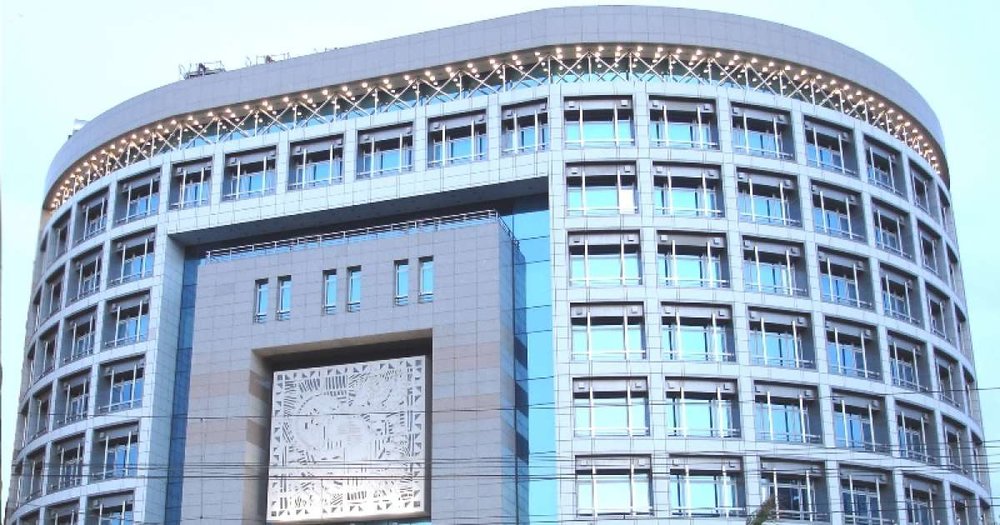
The Periscope Report trade related news round-up from a variety of sources for 11th April 2017.
 Forex-starved Zimbabwe has been given a lifeline after the African Export-Import Bank (Afreximbank) availed two nostro stabilisation facilities amounting to $220 million. The facilities come at a time the economy has been facing a foreign payment gridlock due to the depletion of the nostro facilities. Reserve Bank of Zimbabwe (RBZ) governor John Mangudya told NewsDay last week that the proceeds derived from the two facilities of $70m and $150m each would be used to settle outstanding foreign exchange payments. “We expect to draw down the two facilities of $70 million and $150 million from Afreximbank between this Friday (last week) and Easter. We remain most indebted to Afreximbank that has continued to support Zimbabwe during its hour of need,” he said. “We are going to utilise proceeds from these facilities to settle outstanding foreign exchange payments, supported by funded accounts, for firms that are in the productive sectors of the economy and education foreign payments.” Foreign payments delays have hamstrung companies’ abilities to produce after failing to access key raw materials thereby threatening production.
Forex-starved Zimbabwe has been given a lifeline after the African Export-Import Bank (Afreximbank) availed two nostro stabilisation facilities amounting to $220 million. The facilities come at a time the economy has been facing a foreign payment gridlock due to the depletion of the nostro facilities. Reserve Bank of Zimbabwe (RBZ) governor John Mangudya told NewsDay last week that the proceeds derived from the two facilities of $70m and $150m each would be used to settle outstanding foreign exchange payments. “We expect to draw down the two facilities of $70 million and $150 million from Afreximbank between this Friday (last week) and Easter. We remain most indebted to Afreximbank that has continued to support Zimbabwe during its hour of need,” he said. “We are going to utilise proceeds from these facilities to settle outstanding foreign exchange payments, supported by funded accounts, for firms that are in the productive sectors of the economy and education foreign payments.” Foreign payments delays have hamstrung companies’ abilities to produce after failing to access key raw materials thereby threatening production.
Zim awaits Sadc on import duties
ZIMBABWE is still awaiting technical input from Sadc before addressing the request by South Africa for a phase down of certain duties and surcharges on selected imports into the country. South Africa requested Harare to reduce/remove surcharges covered, which it felt violated the Sadc trade protocol of 2008, but was willing to have Zimbabwe exempted where evidence existed that removing the charges threatened its producers. Pretoria had reportedly requested for Zimbabwe to justify surcharges covered under 112 out of a total of 1 000 tariff lines. Pretoria feels Zimbabwe has been in breach of the rules since 2012. Industry and Commerce Minister Dr Mike Bimha said in an interview that Zimbabwe had written to the regional body and officially made the request for assistance to be able to apply for derogation. Derogation (in trade) relates to non application of a rule or reduction of its stringency for specific periods or in specific cases. According to South Africa, the surcharges disadvantage exports from the region compared to imports from other markets.
Zimbabwe in $14.2 million trade surplus against SA
ZIMBABWE recorded $14.2 million trade surplus against its major trading partner, South Africa, after exporting goods worth $185.4 million to the neighbouring country in February compared to $171.2 million imports.Latest data from the Zimbabwe National Statistics Agency (Zimstat) show that during the period under review, the country’s exports included scrap metal, agricultural produce, beef, minerals as well as wines. Last month, Zimbabwe’s imports from South Africa included vehicles, fish, sausage casings, biscuits, electrical energy, chemicals, disposable napkins, incontinence pads, and wooden furniture. Zimstat indicated that the country’s trade deficit in the first two months of the year was at $309.7 million as exports fell by about seven percent to $240.5 million from $258.7 million in January. On the other hand, imports increased by 10 percent in February to $424 million compared to the previous month’s figure of $385 million.
Zim eyes $1,5m exports to Tanzania
THE recent mission by Tanzanian buyers in Zimbabwe is expected to generate export business worth $1,5 million in the next six months and there is a huge potential for more business, an official has said. Trade promotion body ZimTrade recently hosted an eight-member Tanzanian business delegation, which sought to make orders from local companies. The buyers were drawn from pharmaceuticals, agricultural implements and inputs sector companies. ZimTrade’s public relations officer, Dillon Kamutenga, told NewsDay that the recent mission by Tanzanian buyers was expected to generate export business worth about $1,5 million in the next six months and there is a huge potential for continued business. According to Trade Map, total trade between Tanzania and Zimbabwe grew by an average of 18 percent, from $7,95 million in 2012 to $12,86m in 2015. In 2012, Tanzania’s imports from Zimbabwe were $2,9 million, while its exports to Zimbabwe were $5,02m. By 2015 the figures had improved with Tanzanian imports from Zimbabwe reaching $5,7m, while recording $6,3m as exports to Zimbabwe. According to Trade Map, total trade between Tanzania and Zimbabwe grew by an average of 18 percent, from $7,95 million in 2012 to $12,86m in 2015. In 2012, Tanzania’s imports from Zimbabwe were $2,9 million, while its exports to Zimbabwe were $5,02m. By 2015 the figures had improved with Tanzanian imports from Zimbabwe reaching $5,7m, while recording $6,3m as exports to Zimbabwe.
[Zimbabwe] Chidhakwa says Zim seeking direct diamond trade with India
GOVERNMENT is planning to establish a “direct link” with India for diamond trading without third party involvement, Minister of Mines Walter Chidakwa said on Sunday. He said, “Both India and Zimbabwe want a direct trade in diamonds without involving any third party. India has been importing diamonds mined in our country via third party till now. A direct link will create a seamless supply chain, which will boost the industry further in both the countries.” Chidakwa was speaking to a journalist at the International Diamond Conference in India. According to him, he met the Indian Union Minister of State for Mines Piyush Goyal who shared similar ideas and assured of complete support. “We have a message to the Indian companies that there has been a lull (in diamond supply from Zimbabwe) but very soon we will be back in the market and will be able to sell the diamonds,” he said. Zimbabwe will require skilled manpower to increase diamond manufacturing and will need India’s support, Chidakwa said
Govt expects import bill to drop
The government is expecting a further drop in the import bill during the second quarter as capacity for local firms to sustain the local market requirements improve. The Minister of Industry and Commerce, Dr Mike Bimha, who has in the past three months been involved on a fact finding mission to assess the impact of the gazetted import protectionist policies on industrial growth, recently told the ZBC News that the manufacturing sector is slowly emerging out of the operating difficulties characterised by improved supplies of locally produced commodities in the formal markets. Dr Bimha said the recovery of the manufacturing sector has also led to the sudden continuous drop in the volume of imports with focus now being on the need to concentrate on exports in order to earn the much needed foreign currency to sustain existing operations,. “What we now need is that path to focus on exports because from my assessment we are really having a drop in the volume of exports,” he said.